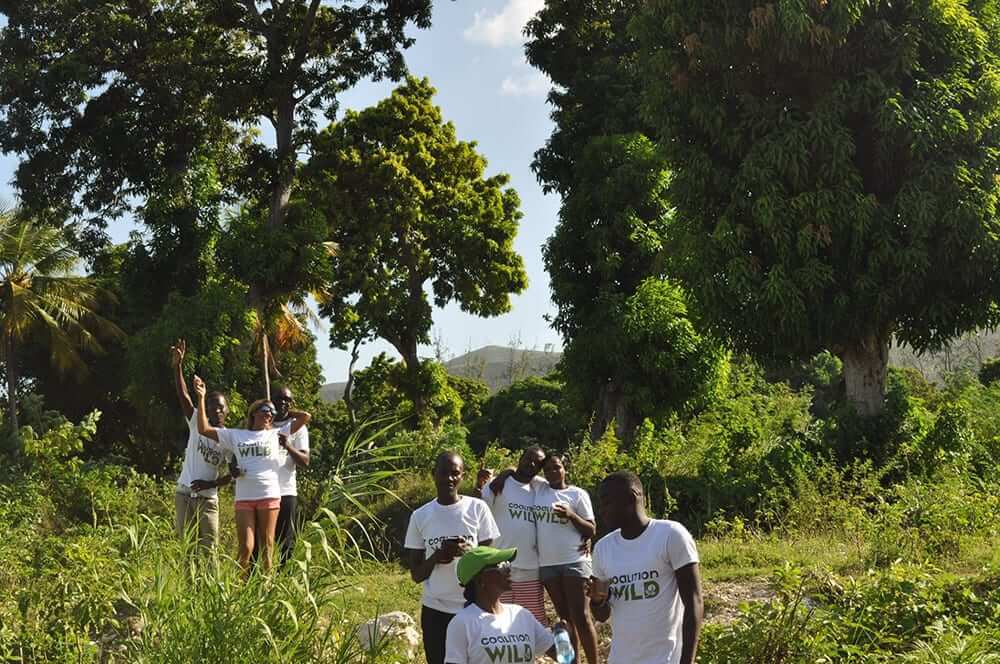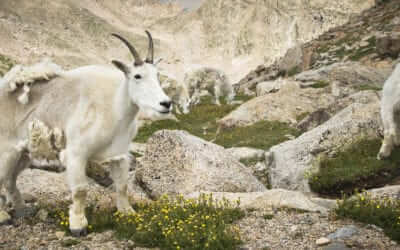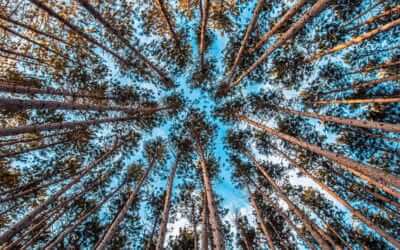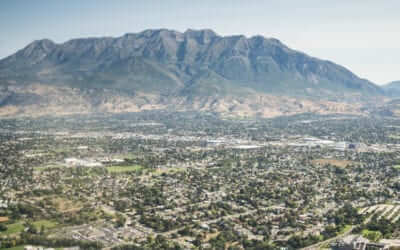CoalitionWILD
International Perspectives
December 2018 | Volume 24, Number 3
A generation of new ambition is staring at its future and is grappling with what to do next and where to start.
Top image: The Samburu people have lived in conflict with elephants for centuries. This elephant keeper even used to throw spears at the elephants. Now, these six-week-old elephants are like his children. Reteti has employed more than 40 Samburu people and has given these villages a reason to not only love elephants but to be proud of their existence as well.
I bounced around the back of the dusty Land Rover while trying to steady my iPhone camera. Katie was remarking on the first orphaned elephant she ever saved and I wanted desperately to capture the moment. It was a scorching morning in northern Kenya’s Samburu county, and we were on our way to the quarterly meeting Katie and Jeremy had with village elders. Ten minutes away from our destination and 25 minutes after the proposed start time of the meeting, Jeremy spots one of the elders walking through the barren landscape and slows.
“Would you like a lift?” Jeremy yelled in native Samburu.
The man climbs in as I replay the video and realize my attempt was worthless. Delete.
I ditch my recording efforts and take stock of our new addition. The man’s dark skin is worn from years in the relentless Kenyan sun, and his feet and hands have grown tough from endless miles walked across the open bush corralling cattle. He’s dressed in what I’ve come to understand as “new-age traditional,” which includes the customary and brightly colored wrap around his waist and hand-beaded jewelry adorning his neck and wrists, paired with an out-of-place Adidas t-shirt. His teeth are spaced and yellowed, and he has wide, round eyes that soften as he met my gaze.
“Habari,” he says. Good morning.
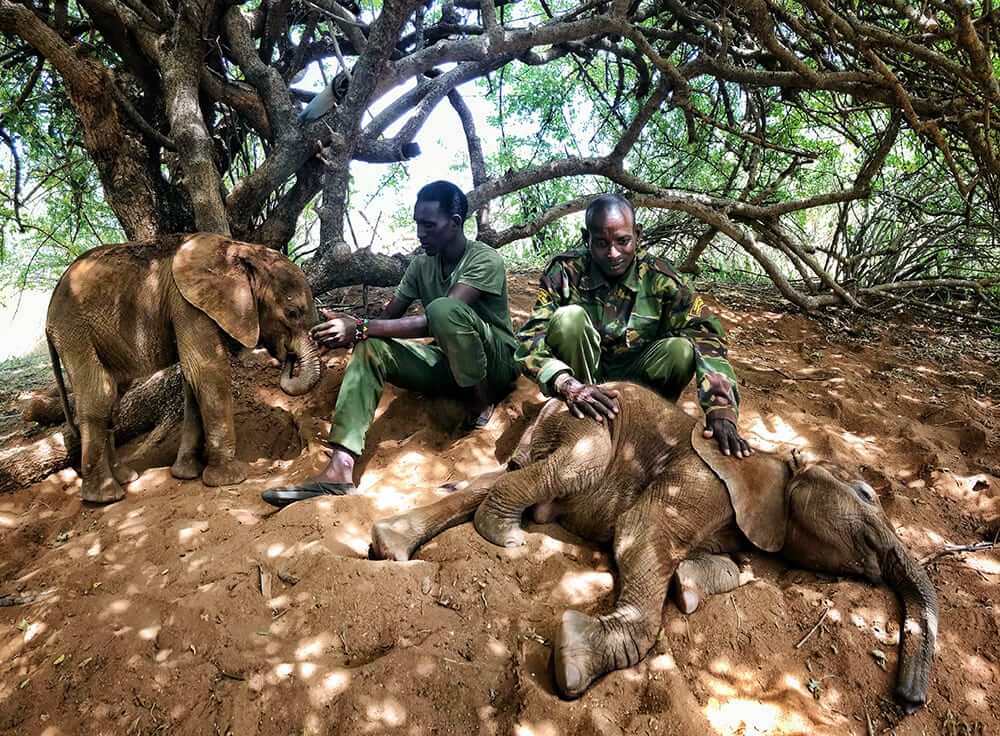
Figure 1 – Many of the elephant keepers at Reteti Elephant Sanctuary saw elephants as a nuisance and a threat to their communities and livelihoods. Since Reteti opened and began hiring only local Samburu people, the community’s view on elephants has drastically changed.
We arrive at Reteti Elephant Sanctuary, and its setting in the middle of nowhere is also a core reason for the sanctuary’s existence. In the past, orphaned elephants from the region were being rescued, transported, rehabilitated, and released in other parts of the country. At only 28 and 29 years old, Katie and Jeremy saw a community conservation opportunity that would bring jobs, livelihoods, tourism, gender equality, education, and a greater protection of elephants and wildlife to the area. Two years of meetings with the Samburu tribe and other stakeholders eventually led to the opening of Reteti – the first community-owned and -operated elephant sanctuary in Africa, which touts that all of its employees come from the local Samburu community. They also have the first-ever women elephant keepers in Africa.
We climb out of the buggy, and Katie gives me a quick tour of the modest grounds set beneath the remote Mathews Range – the open-air kitchen where keepers are mixing unique batches of formula for each of the 12 baby elephants; the barracks where the elephants and their individual keeper spend the night; the whiteboard recording every detail about each elephant on the property.
“There is no guidebook to doing this work. It’s trial and error most days,” Katie tells me. Reteti is so remote that Katie had to become a makeshift veterinarian overnight.
“An elephant cut its leg and was bleeding badly. There was no way a vet could have made it here in time, even if we flew him in…so he walked me through how to stitch up the leg over the phone.” Katie shrugged as she turned and walked toward the door. “We need to be self-sufficient out here.”
An Unfortunate Common Thread
Katie and Jeremy’s story tears at me. Half of me is inspired by their vision, their pursuit, and their progress. I’m awed by their resilience, and humbled by their genuine respect and honor of the Samburu culture and ways of living. I feel hopeful – for the community and for the elephants – and even allow that hope to expand into a hope for the future of the planet.
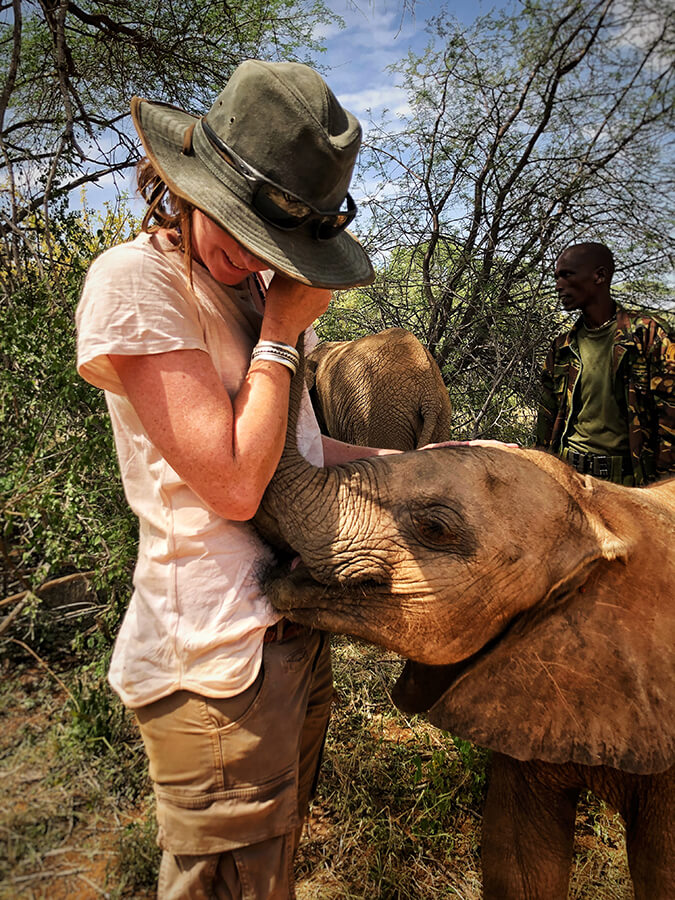
Figure 2 – Reteti cofounder Katie cares about these young, orphaned elephants as if they were her own children.
The other half of me flirts with enragement. The barrage of articles and commentary about an apathetic and selfish millennial generation flashes through my mind. Would any of those pieces have been written if the author could see what I’m experiencing? I also intimately understand the challenges facing Reteti, Jeremy, and Katie in finding recognition, funding, and support. I’m fearful about how their isolation will affect their confidence, motivation, and effectiveness.
These concerns aren’t unwarranted. Over the last five years, I’ve worked with young people from around the globe on initiatives aimed at tackling environmental challenges. Mostly, they aren’t as large, intricate, and established as Reteti, but there are common themes that thread their way through a majority of these stories – the isolation, the lack of resources, the uncertainty, the unrelenting passion, the impending burnout. A generation of new ambition is staring at their future and are grappling with what to do next and where to start.
Equipped with a worldview unattainable before the ease of the internet, these young leaders have a poignant understanding of their status as it relates to the rest of global society. This leaves them with two options: to be handed a world created for them, or to take part in designing a world in which they want to live. For those who envision change, taking the first step is intimidating all on its own. Once they do, waiting for them is a gauntlet of challenges breaking even the most driven of spirits, driving away new talent, energy, and visions before they often see the light of day.
A Global Connected Community
A lack of youth voice and opportunity for advancement is seen across the environmental sector, and is an issue that has been highlighted by global leaders for more than a decade. At the 5th World Parks Congress in 2003, the late Nelson Mandela addressed the crowd in his opening remarks stating,
“It is well known that, among those who are preoccupied with the future of protected areas, there are a great many grey heads and far too few youthful ones. I am told that under-representation of the youth is a widespread phenomenon in many fields associated with protected area management. This is of course a matter for concern because without the involvement of the youth, the future cannot be secured.”
The focus on youth rose again at the 9th World Wilderness Congress in 2009, where one of the 44 targeted resolutions adopted read, to “engage youth and young professionals on substantive issues of wilderness, biodiversity, and climate change.” It was there that the WILD Foundation’s President, Vance Martin, sought to answer this call to action.
In the lead-up to the 10th World Wilderness Congress (WILD10) in 2013, Martin approached both Simon Jackson, the Spirit Bear Youth Coalition Founder and Time Magazine’s Hero for the Planet, and me to develop a youth component to the conference. Tasked with developing a space for young people to connect, share, and gain information and support, we began putting together the rudimentary skeleton of a youth delegation for WILD10.
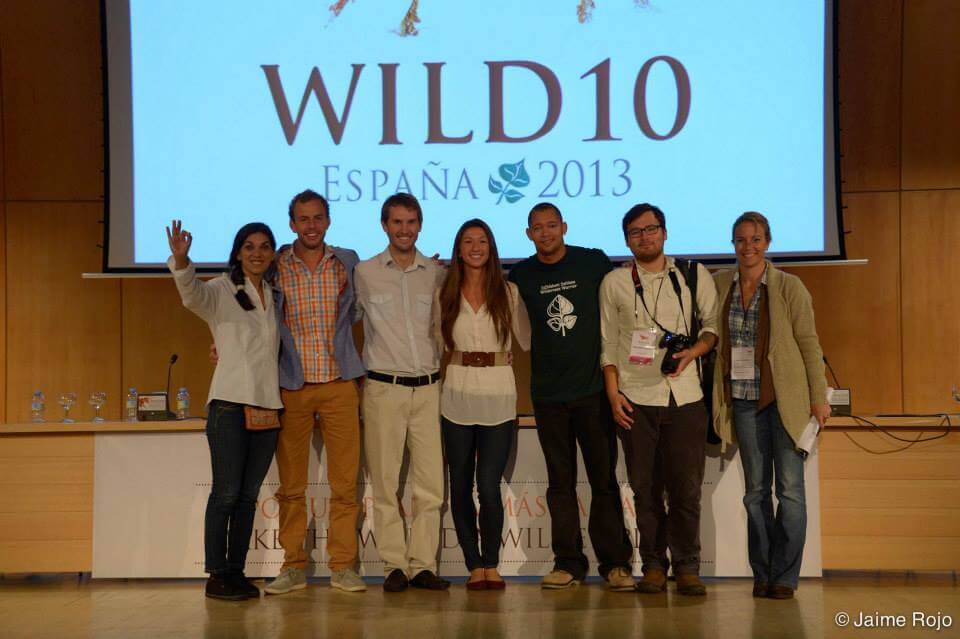
Figure 3 – CoalitionWILD officially launched in Salamanca, Spain, in 2013 at the 10th World Wilderness Congress.
What we began to realize was that this was an issue reaching far beyond one conference, and that an organization focused on connecting, equipping, and sharing the stories of youth and young professionals was an opportunity to address a systemic problem for the long run. It was then that CoalitionWILD was conceptualized, and the initiative was officially launched at WILD10 in Salamanca, Spain, in 2013 with the mission to connect and equip young leaders to tackle our planet’s greatest conservation challenges.
As a global connected community, CoalitionWILD is surfacing and sourcing young leaders on the edge of making a difference and is propelling them to their full potential as changemakers for the benefit of nature. With more than 10,000 members worldwide, and project leaders and ambassadors spanning 52 countries, this movement led exclusively by people under 35 years old is ensuring that young people have a voice for change and the tools available to make it happen.
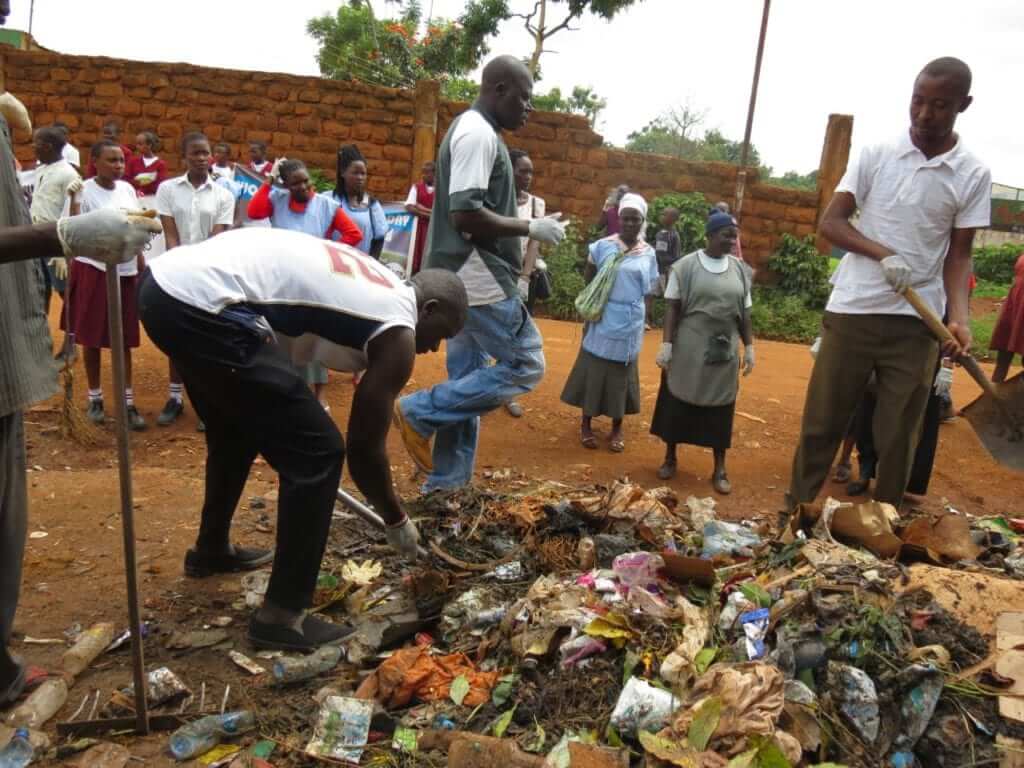
Figure 4 – Each CoalitionWILD ambassador is tasked with completing an action project by the end of the nine-month program. Ambassador Kevin Lunzalu’s project involved a trash cleanup in his community in Kenya.
Elevating and Driving Forward
“My biggest challenge is convincing the authorities [in charge] that youth-led projects can play a very big role in conservation if given the space and support they deserve,” says Kenya’s Kevin Lunzalu, 26. “Grassroots work spearheaded by young conservationists are rarely taken into consideration. This is why young people cannot afford to dedicate their energy and time to conservation issues and are eventually demoralized. It seems conservation as a source of livelihood is rarely economically rewarding.”
Kevin is a part of CoalitionWILD’s 2018 Ambassador Cohort – a yearly program designed to seek out young leaders poised and impassioned to drive change and mobilizing them into action. Through a series of webinars and resources, peer-mentoring, and individualized support over nine months, participants are tasked with developing a unique action project to carry out by the completion of the program. Once the program is completed, participants become a part of the CoalitionWILD network, giving them a platform to share their project, stories, and successes; access to contacts and new resources; and opportunities to further their work and careers.
A core element of the initiative is the comradery shared between Ambassadors. “It’s true what Kevin said about the lack of interest on youth-led projects. That vibrant energy is so precious and sometimes can be considered naive by older people. I think motivation is the most important thing to protect and promote,” agrees Maga Guanilo, 30, as she faces the same issues in Peru.
With instant knowledge and a connection to the world at their fingertips, young people are more globally aware, socially conscious, and poised for action than ever before. They seek opportunities for betterment – for themselves, and for their communities. Most importantly, they are driving innovation and progressive agendas. When young leaders work in isolated settings, without advice or encouragement, it is difficult for them to sustain valuable efforts over time. Through CoalitionWILD, we are using mentorships, peer learning, storytelling, and action resources to develop and expand young conservation leadership, increasing the capacity of the next generation to solve conservation problems, now and in the future.
Augustin Dieuseul is a 32-year-old Haitian who, despite the poverty, malnutrition, political uncertainty, and unrelenting natural disasters that have faced his country, still beams with a passion to bring change and hope to Haiti. At only 17, Augustin began volunteering to support environmental efforts. “My passion for working with children, school kids, and orphanages sums up the struggle of [taking on] responsible citizen action to bring about a change in behavior and hope in my country,” Augustin shares.
Although driven and ambitious, Augustin still faced the same challenges that Jeremy and Katie from Retiti do: isolation, a lack of resources, and difficulty in expanding his work and his network. When Augustin approached CoalitionWILD with the desire to “work with other like-minded people who seek positive environmental change,” he was invited to be a part of the 2016 CoalitionWILD Ambassador Cohort. Offering Augustin peers to lean on, a platform to share his story, and connections to resources that deepen the impact of his work, Augustin was able to visit 10 rural schools that were recently affected by natural disasters.
“I have been to several schools in rural areas…to discuss with the children about the future of biodiversity in Haiti. We taught the importance of preserving forests, and taking care of the planet,” he explained in an interview with CoalitionWILD. “Ten of the schools asked for us to work with them to teach (environmental) education, and five schools asked us to help design school gardens.”
Augustin continues to travel around Haiti, teaching schoolchildren about the importance of biodiversity and protecting the environment while implementing school projects in these rural villages. As Haiti continues to bear the brunt of some of the worst climate disasters and remains on the brink of ecological and economic collapse, Augustin’s work slowly chips away at each of these issues through community engagement, empowerment, and education – efforts that were close to being unrealized and underutilized if left to their isolation.
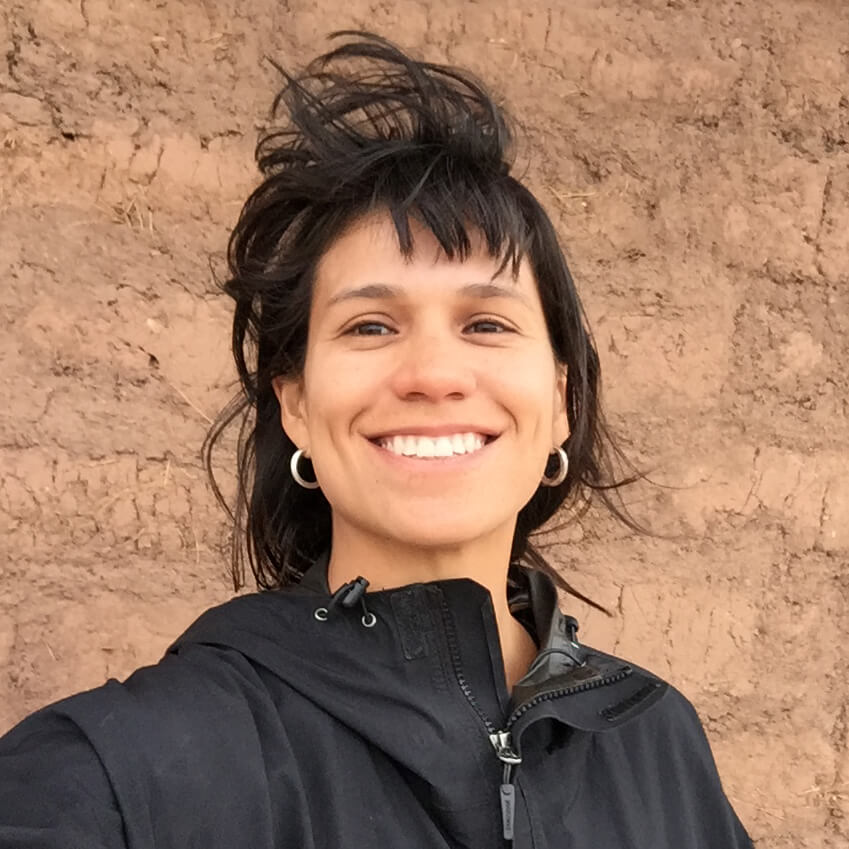
Maga Guanilo, CoalitionWILD Ambassador
“We are part of a whole. Let’s embrace it and reconnect with deeper wisdom. Let’s team up with nature and see the healing and blooming of disrupted societies. I am an architect based in Lima and work with Mauricio from Arequipa. We design for social regeneration and the restoration of natural ecosystems. We look for ways to support collective wealth and elevate the quality of life for all living beings.”
Tensions in the Field
In South Africa, 30-year-old Neale Howarth struggles to find his voice amongst higher-ranked and more experienced workers in the field.
“My biggest issue is that, in my area, there are not a lot of young people in high conservation roles. When a young person tries to get involved or voice their opinion, they are seen as lacking enough experience to have a say. Plus, most of the older people here have learnt through experience, so are skeptical about new ideas or knowledge and sometimes even seem threatened when suggesting something different than what they’ve been doing.”
This tension isn’t new. Institutional knowledge plays a critical role in the success of an organization, and sector experience is difficult to quantify. Most long-standing professionals have gained their information through years of study, fieldwork, and hands-on experience. Their efforts are a result of trial and error, research, and developing methods that quicken the rate of progression. In general, young people learn more quickly and easily than adults (BBC News 2006; Rudeer 2008), and as information becomes more readily available and easily explained, the rate of understanding increases exponentially, allowing young environmentalists to step into the field with the same amount of baseline knowledge as their tenured peers. Yet, when new research and methods backed by science are suggested, the urge to resist change is strong. “As new scientific methods and research are conducted, I find that it is often the argument of current trends and scientific results versus what they’ve seen firsthand and what they’ve practiced,” Neale continues, “so we do clash on a lot of aspects such as animal treatments, vegetation control, and other environmental management tools.”
Bridging Gaps
CoalitionWILD is exploring ways to bridge this gap and foster intergenerational dialogues that address Neale’s concerns. While most mentorship programs see participants as mentors and mentees – one teaching the other – CoalitionWILD’s mentorship program facilitates co-learning through co-mentoring. The concept is simple: each participant has as much to teach as they do to learn.
In Spring 2017, CoalitionWILD launched its mentorship program in partnership with the United States Department of Interior, matching 12 pairs for the yearlong experience. The goal was to empower young changemakers with the opportunity to learn from conservation veterans, endowing them with professional connections that tie them into knowledge, networks, and resources that would have otherwise been inaccessible, while offering an outlet for the veterans to share their expertise, gain fresh insight into their work, and foster the next generation of leaders.
With mentees from South Africa, the Netherlands, United States, Canada, Nepal, United Kingdom, West Africa, Zimbabwe, and Australia, and mentors from department agencies including the Bureau of Land Management, US Fish and Wildlife Service, National Park Service, Bureau of Ocean Energy Management, and US Geological Survey, the range of experience and interest was vast. “It was refreshing to step away from my local conservation issues and contemplate what was universal,” shared one of the program mentors. “[The program] helped to refresh my perspective on my own challenges.”
Although not mandatory, pairs were encouraged to meet via phone or video conference bimonthly, and were given suggested topics to cover during those meetings. Group calls between all mentees and all mentors were held during the program to connect participants to each other while discussing what was working and to troubleshoot challenges they were facing.
“My favorite moment [in the program] was on about our third mentoring session when Jordi and I realized how similar the social aspects of conservation are across the world,” shared 2018 mentor Casey Burns. “I think this program is helpful in broadening perspectives, sharing experiences, and helping to cope with the ups and downs in working in this field.”
As CoalitionWILD expands the program into its second year, an emphasis is placed upon discovering ways to bridge the gap between generational learning by providing training tool kits to each participant on topics such as Mentorship How-Tos, Goal-Setting Exercises, and Effective Communications, plus many others. Funding dependent, we hope to hold regional gatherings for participants where feasible. By expediting learning and relationship building, up-and-coming leaders can hit the ground running with confidence and credibility to create rapid wins for people and the planet.
An urgency reverberates throughout the environmental sector and beyond. There is no longer the luxury of wait and see. It’s not that past generations didn’t have challenges, or that those problems weren’t pressing; it’s just that typically those problems didn’t involve the loss of 25% of all life on Earth in the blip of 25 years. But that’s the reality the next generation faces.
CoalitionWILD believes that young people have the capacity to generate positive change because we have seen it happen firsthand. I believe the greatest challenge we face goes beyond climate change, plastic pollution, habitat degradation, extreme poverty and inequality, or any such issue. In truth, our biggest challenge is removing the barriers to innovation and accelerating change.
There are millions of reasons to be hopeful for the future of our planet. Young people are doing great work all around the world, and their work is making a difference. We need more people doing.
In the 18 months that Reteti has been open, the elephant sanctuary has rescued 30 elephants, and currently has 35 staff caring for 10 elephants 24 hours a day. Yet, despite these glowing numbers, Katie measures their success in behavior change.
“Not so long ago, elephants were seen as giant pests…now the community is so proud of this project. When I see community members, people ask me how each elephant is doing by name. When we’ve lost elephants, everyone feels the heartbreak; when a calf has made it through a tough time, everyone celebrates,” Katie recounts in an interview with Conservation International in February 2018. “Reteti demonstrates what is possible in that people can live the lives that they want and also have a healthy environment; it doesn’t have to be one or the other.”
CoalitionWILD is a project of the WILD Foundation, a 501(c)3 nonprofit. To support CoalitionWILD and the young leaders they are working with, consider making a donation here.
CRISTA VALENTINO is the director of CoalitionWILD, the North American focal point for IUCN World Commission on Protected Areas Young Professionals, and ice-cream connoisseur; email: crista@coalitionwild.org.
References
BBC News. 2006. Why the young learn more easily. Retrieved from http://news.bbc.co.uk/2/hi/health/6172048.stm.
Rudeer, D. B. 2008. September–October. The teen brain. Retrieved from https://harvardmagazine.com/2008/09/the-teen-brain.html.
Read Next
Apologizing for Science-Based Decision Making in Protected Area Management
Apologizing for science promotes autocratic management that can easily be commandeered by sociopolitical agendas and bureaucratic systems.
Wilderness Giant: Stewart “Brandy” Brandborg Moves on at 93
Steward Brandborg was a phenomenal wilderness champion, the last wilderness advocate with ties to most of the founders of the modern wilderness movement.
Cultural Meanings and Management Challenges: High Use in Urban-Proximate Wildernesses
As outdoor recreation increases in popularity and metropolises grow larger, the issues facing urban-proximate wilderness and protected lands will continue to come to the forefront.

